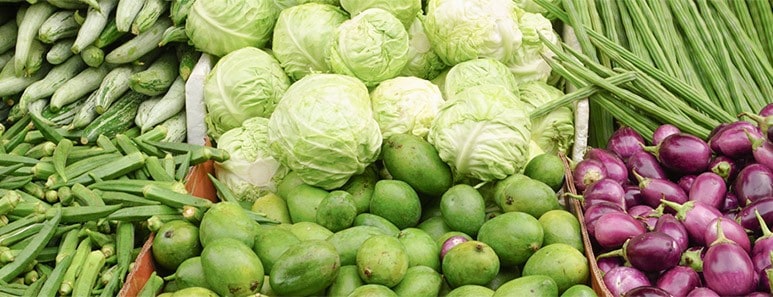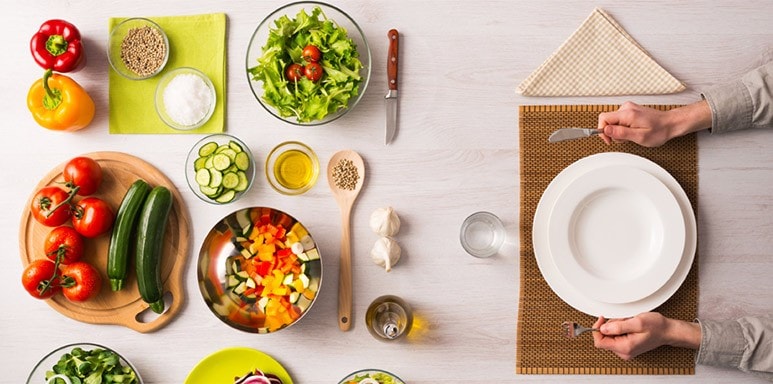Eco-Dining: The Desire for Sustainable, Locally-Sourced Food
Meet the modern diner’s preference for meals that are both tasty and environmentally sustainable.
Restaurants today are increasingly trying to meet the desires of more environmentally-conscious diners. Our decisions in the supermarket or when we are out dining are slowly becoming less about convenience, taste and price. Instead, there is an increasing emphasis and belief in sustainable food.
What is sustainable food?
Sustainable food isn’t only about the food itself — it’s about a combination of factors such as how the food is being produced, how it’s distributed, packaged and how it’s consumed. While the list of what food sustainability is covers many aspects, the spotlight now is on using local produce, fair trade products, and incorporating green practices such as composting and recycling.
These factors are changing the way diners eat out, and sustainable dining is now gaining momentum both at home and abroad.
What are some of the food sustainability efforts in Singapore?
In Singapore, there are 4 noticeable food sustainability efforts that work to champion a change of eating habits.
1. Singapore Food Agency (SFA) to oversee food safety and security
One of the key aspects of sustainable food is to ensure that there is enough food not only for this generation but also for future generations. Hence, SFA is committed to overseeing this from farm to fork. Consumers and even businesses can support this by shopping from wholesale markets.
2. Zero Waste SG for reducing waste
What began as a website providing tips and resources on waste minimisation and recycling in 2018 turned into a recognised charity that has reached over 55, 000 people and engaged more than 220 companies through its campaigns and services with Zero Waste SG.
Some of these campaigns throughout the years include ‘BYO (Bring Your Own) Singapore’ Campaign, which encouraged locals to bring their own cutlery and takeaway boxes when ordering food, and even a BYO Singapore Guide ranking 100 F&B retailers. These have helped to reduce over 2.5 million pieces of plastic disposables in 4 months, and the campaign now has 1,102 supporting outlets from 141 brands.
3. Susgain to encourage a sustainable lifestyle
Susgain aims to encourage a sustainable lifestyle through its free mobile app, by incentivising users with free points whenever they engage in eco-friendly habits. This could be shopping at eco conscious stores, donating, participating in clothing swaps and more!
4. Food Bank Singapore to reduce food wastage
Food wastage is a global issue, and Food Bank Singapore aims to help tackle this by collecting excess food from food suppliers and re-distributing it to organisations such as soup kitchens, family service centres, and aged care facilities.
What is farm to table?
Another term for farm to table is farm to fork, and refers to a social movement that promotes sourcing directly from local producers to restaurants and even school cafeterias. This can be accomplished in many ways, such as a direct sales relationship, a farmer’s market, a community-supported agriculture arrangement and more.
It’s time to be a trailblazer in Singapore’s F&B scene and encourage eco-friendly habits by practising them in your restaurant. For example, do you consider what local sources of food are available? Do you use fair trade products if there is no local alternative? How do you deal with your compost?
To get started, here are 5 eco-friendly practices that can make your restaurant the talk of the town among environmentally-conscious customers.
1. Source local produce whenever possible

Local produce in Singapore is gaining momentum these days, especially with the move towards 30 by 30, where the aim is to produce 30% of the republic’s nutritional needs locally and sustainably by 2030.1 By sourcing for local produce, you are committing to your local community, economy and the environment.
Many diners will be supportive of the idea that their food originates from a local source, and may even be willing to accept slightly higher prices knowing that they are contributing to local communities and consuming food that is from known and trusted sources.
2. Buy from eco-friendly suppliers
There are increasingly more eco-friendly suppliers despite Singapore’s small footprint and limited farming capabilities. For food that cannot be sourced locally, opt for the next best alternative! Look to overseas suppliers who adopt environmentally-friendly practices or support fair trade whenever possible.
Beyond food and ingredients, make sure to consider eco-friendly suppliers for your packaging as well! Here are 5 local eco-friendly packaging suppliers that you can consider:
- BioPak
- Eco U
- HappyPackSG
- Detpak
- Pouch.eco
3. Make ethical food choices

Free-range products
This is applicable to eggs and meats, and this practice denotes a method of farming where farm animals can roam freely outdoors.
Sustainable fisheries
Whether local or offshore, your fish and seafood should come from fisheries that maintain sustainable practices, and you could make this a selling point on your menu. Try exploring the options from the local fish market, if you don't already do so. You may also consider eco-farm fisheries that do not overfish. Be sure to read about a company's aquaculture policies before committing.
Sponsoring ethically-friendly events or companies and organisations
Promote your restaurant's commitment to eco-dining by partnering with a fair trade product or company. Sponsor an ocean project or organic food community and consider joining eco-initiatives.
4. Composting
How much of the waste produced by your restaurant is composted? Are there businesses around you that you can collaborate with to have waste composted? Consider how this can be repurposed to the market gardens that supply the fruit and vegetables that you use, or you may even be able to use it in your own kitchen herb-garden.
5. Recycling
Make this a daily habit among your kitchen crew and remind them of the three Rs – reduce, reuse and recycle! Be sure to sign up to have your recyclable waste removed from your kitchen, bar or restaurant too.
1Reference: https://www.straitstimes.com/life/food/local-produce-is-fresher-lasts-longer
Back to INNOVATION & TRENDS
What you'll get:
- Access to free Chef trainings
- The best recipes and tips from Chefs around the world
- The latest culinary trends